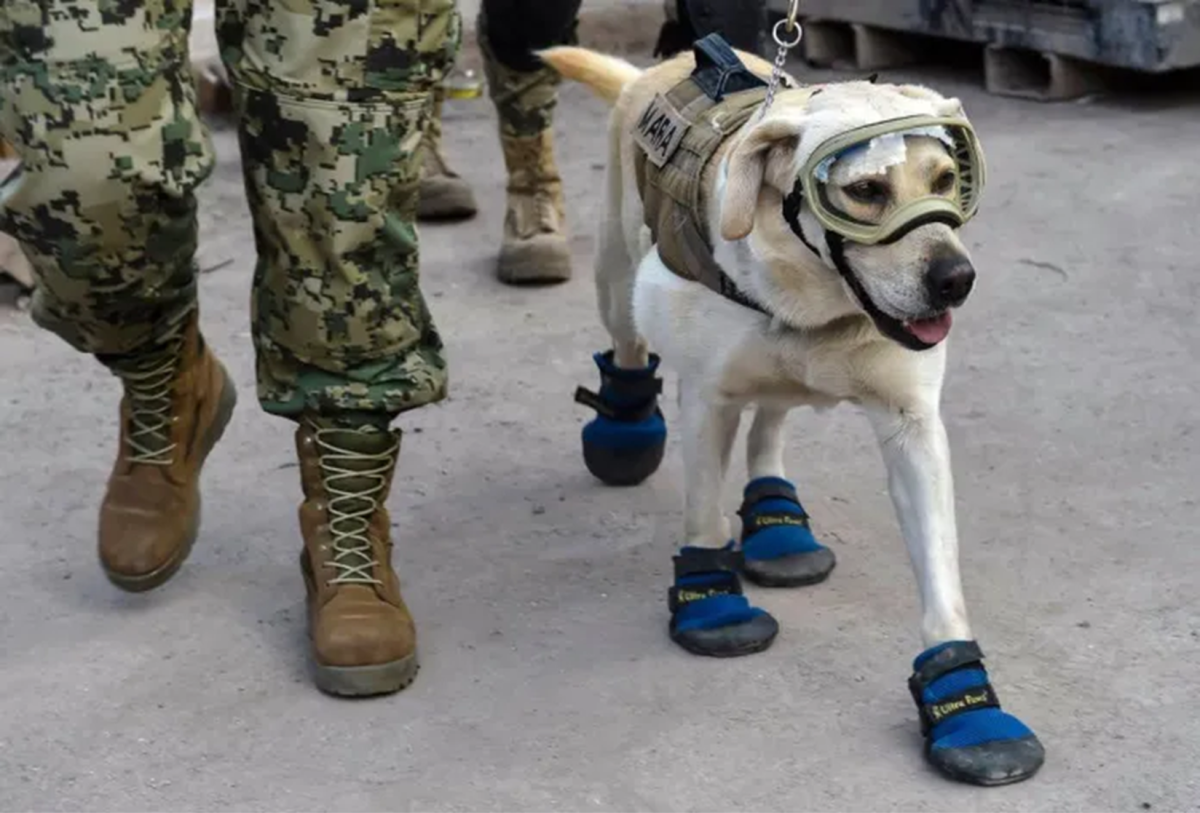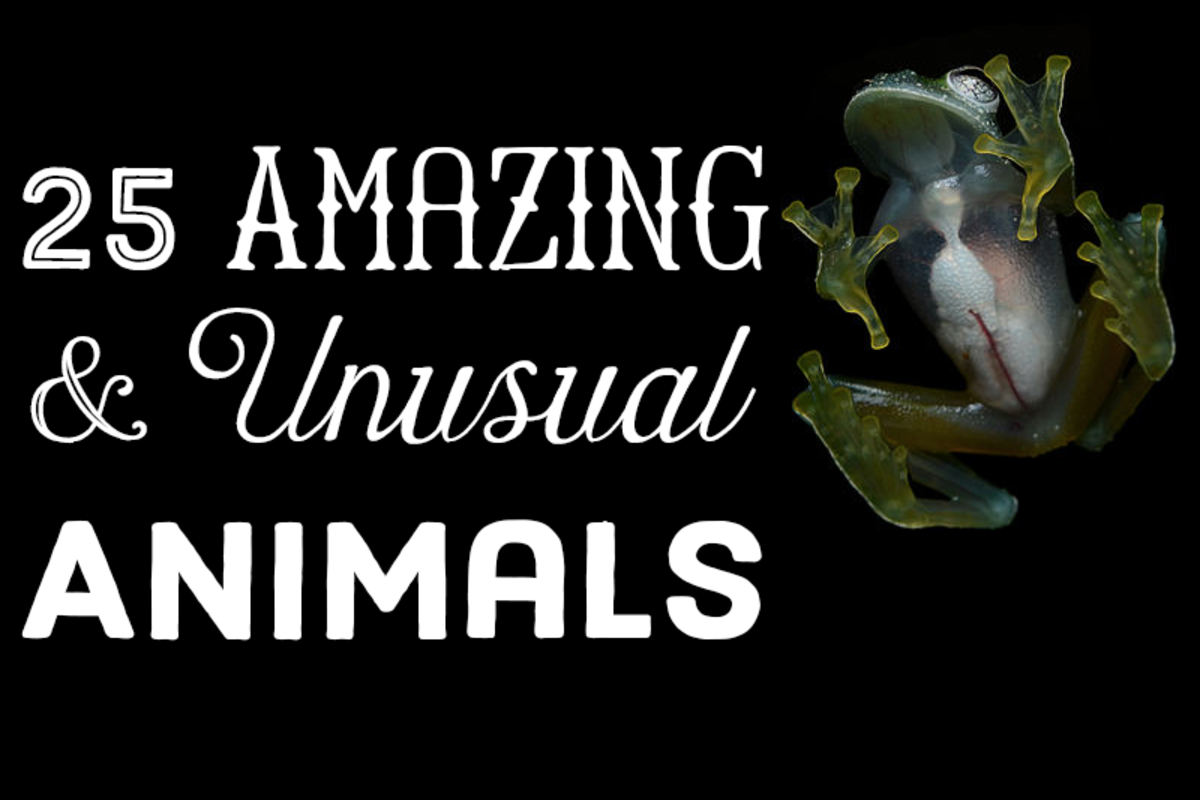- HubPages»
- Pets and Animals»
- Animal Care & Safety»
- Animal Rescue
Alternatives to Traditional Dog Ownership
Dog care is time-consuming
Taking good care of a dog is a huge responsibility. It's necessary to take most dogs out for daily walks of varying lengths, depending on the breed. You've got to feed your dog twice a day, and take her outside several times a day, so that there are no accidents on the living room carpet. Dogs require varying amounts of grooming, depending on the length of coat. Some experts also recommend that you brush your dog's teeth every other day. You should keep their toenails clipped, which is easier said than done.
Hi Fido, it's time for your nail trim. Hey, why are you hiding behind the sofa? Hub author alexadry has written a great hub about canine nail clipping.
Training your dog is also important. In addition to essential housetraining, your dog should know Come, Sit, Stay, and Leave it. In order to make dog-walks more enjoyable for both of you, you should teach your dog not to pull on the leash. You should spend a few minutes every day reinforcing the commands that she learned in obedience class.
What to do if you fly across The Pond for a vacation? Bringing your dog with you is not always possible. Some rabies-free places have very long canine quarantines, for obvious reasons. Perhaps a friend will take in your dog while you're away.
Otherwise you'll need to check your dog into a boarding facility, aka a Hound Hilton. While you're having a great time, your dog will miss you very much. She'll also get insufficient physical exercise, and insufficient mental stimulation.
Fortunately, there are at least four alternatives to traditional dog ownership for busy people.
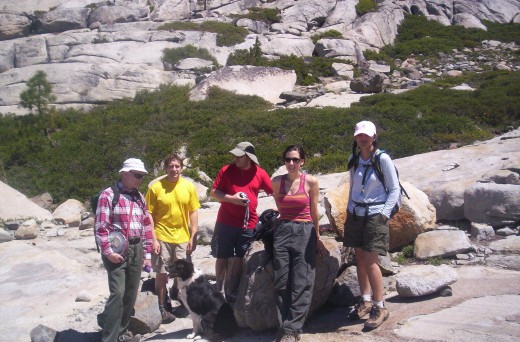
Become a doggy uncle or auntie
Several years ago, I saw my neighbor's daughter in front of her unit, holding a beautiful black-and-white Border Collie puppy in her arms. Gurr--yes, that's really his name--and I became good friends. When he was old enough, I took Gurr for short walks in the neighborhood. He enjoyed the human companionship, exercising, exploring, and sniffing the local doggy bulletin boards.
When Gurr was 11 months old, I started taking him on Northern Sierra day-hikes. I love short hikes, and they were even more enjoyable with my furry friend. It was a win-win situation for everyone. When Gurr came home, he was calmer and easier to live with, because his workaholic Border Collie demons were temporarily exorcised through physical activity, and through companionship with his human hiking buddy. On hiking days, I had all of the benefits of dog ownership, with few of the responsibilities.
By the way, Border Collies, like Gurr in the photo, are truly wonderful hiking companions. But they need more mental and physical activity than any other dog breed. If you don't give your BC a full-time job, like herding sheep, he'll invent a job for himself. And you may not appreciate it. Here's a LINK to some Border Collie horror stories, by people who truly love their dogs.
Even though we had a small dog when I was a child, I'd never had a real canine friend before. I remember that on one of our neighborhood walks, I coughed. Gurr turned his head, and looked up at me, as if to say: Are you OK, Bro?
Yes, I was a doggy uncle. You can do it too. Even if you're a not a wilderness hiking buff, you can still take your neighbor's friendly dog for short walks in the neighborhood, and get some healthful exercise.
Here are some more alternatives to conventional dog ownership.
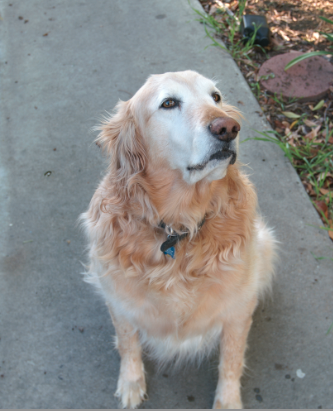
Volunteering
If you choose not to become a doggie uncle or auntie, you can still volunteer through your local Animal Control, through your local SPCA, or through a breed rescue group.
There are two SPCAs in the metro area where I live. My overall impression is that they're unnecessarily bureaucratic. One of them insists that you take a long training course, and that you make a year-long volunteering commitment. The home page of the other SPCA doesn't even have a direct link to a volunteering information page.
For that reason, I think that volunteering through a local breed rescue group is a better option. In my area, there's an outstanding Golden Retriever Rescue.
They take in ALL surrendered or abandoned Goldens, regardless of age or veterinary problems; as well as Golden mixes, Flatcoat Retrievers, and occasionally other breeds. They do have a volunteering info page.
One of the volunteer opportunities is the Golden Taxi service. When Animal Control takes in a Golden, they call the rescue group. The Golden Taxi driver transports the dog to the rescue group's facility for evaluation. Then the dog goes out to a temporary foster home.
The rescue group's volunteer info page also asks if you would like to volunteer in some category that they haven't thought of yet.
I've met some of the Golden Rescue folks on day-hikes. I was very impressed by them, and by the dogs in their care.
If you need some dog days in your life, but don't have the time to be a traditional dog owner, volunteering is an option that's worthy of your consideration.
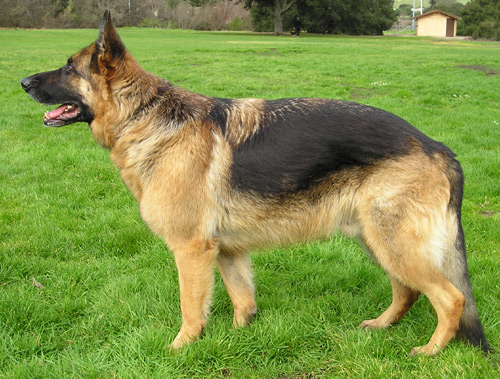
Fostering a dog
You can take in a foster dog through your local Animal Control, through your local SPCA, or through a breed rescue group. The foster dog stays with you until the sponsoring organization finds a forever home for her. Sometimes they'll also pick up the tab for any veterinary care that she needs during her stay at your home. There'd be a lot of work initially, because of the housetraining.
A big advantage of fostering is that it's a temporary arrangement. And you can learn a lot about dog psychology.
You can also gain first-hand knowledge about the temperament of a breed that interests you. You may find that that breed is a good match for your needs. You may even decide to adopt your foster dog yourself.
Or that breed may prove to be too much dog for your family. But even in the worst case, where the fostering arrangement did not work out, there's a silver lining. You'll have some valuable information to pass on to the sponsoring organization. And that information will help them find the right home for the dog.
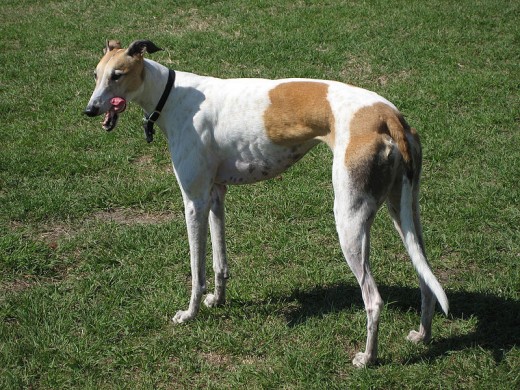
Group ownership
Although this last option is one that I don't know much about, I'm mentioning it for the sake of completeness. Two households could share responsibility for one adult rescue dog. Of course, only one of the two parties would be the owner of record. And yes, housetraining would be necessary for each house.
You and your co-owner could work out a schedule that specifies where the dog lives on each day of the week.
Another scenario is that the dog will have a daytime home with a retired person, and a separate night home with you, when you get home from work. The dog would have loving human companionship all of the time.
One advantage of group ownership is that you'll have peace of mind, knowing that your furry friend will have excellent care while you're away on vacation. If you like dogs, and don't have much free time, group ownership is an option to consider.
I recommend choosing an adult rescue dog. You'll not only save a life, but you'll bypass the high-maintenance puppy stage. Yes, your rescue dog is more likely to have hip dysplasia or some other manageable genetics-related health problem, as compared with a puppy from a reputable breeder.
On the other hand, the rescue folks will have had experience living with that particular dog. For example, does the dog chase cats? That would not be an issue for me, because I'm allergic to cats, and would never consider owning one. Anyway, the breed rescue folks will be happy to share that kind of information with you; so you're likely to get a dog whose temperament is compatible with your lifestyle.
If you like large dogs, and choose group ownership, I recommend an adult Golden Retriever. The Golden is arguably the friendliest large breed of dog. If a Golden could speak English, she would say, "I want you to love me, and if you don't , I'll eat all of your furniture!" Goldens tend to have intermediate activity levels.
Hub author Habee has written about Lazy Dog Breeds. Believe it or not, retired racing Greyhounds are supposed to be unusually laid-back.



